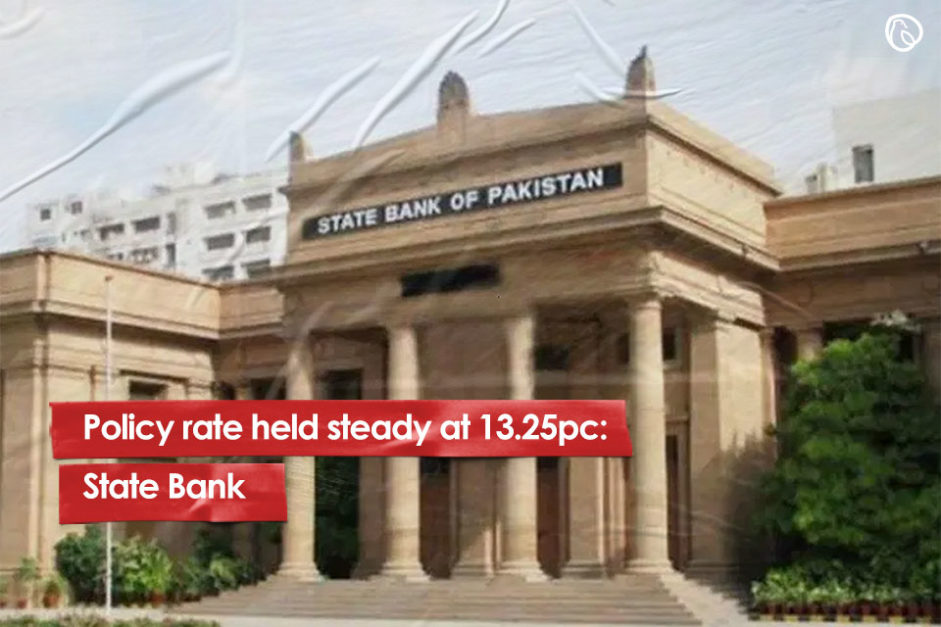

KARACHI: The policy rate has remained unchanged, and has been held at 13.25% pointing to stable inflation, announced the State Bank of Pakistan (SBP) in its monetary policy.
However, the threat of any ‘fiscal slippage or other adverse developments’ could cause inflation to start rising again, they further added.
According to the Monetary Policy Committee (MPC) expected inflation may average on 11-12% in the fiscal year 2020, said the SBP. However, on the basis of the current stance of monetary policy, it will be possible to bring inflation down to the target range of 5-7% over the next twenty-four months. This observation is based on available information, as the Monetary Policy Committee (MPC), considered key economic developments, external and fiscal sectors, and resulting monetary conditions and inflation.
In the case of fiscal slippage or other adverse developments, inflation could rise above the baseline projections. On the other hand, if oil prices decline, the exchange rate appreciates, or aggregated demand slows faster than expected would cause inflation to fall earlier than expected, were the reasons highlighted by the MCP as prevalent risks to look out for inflation.
The MPC further briefed in the statement about the interbank foreign exchange market adjusting relatively well to the introduction of market-based exchange rate system.
The external sector continued to show significant improvement with a sizeable reduction of almost 32% (or 1.5% of GDP) in the current account deficit during the last fiscal year.
The International Monetary Fund programme and activation of the Saudi oil facility has helped build the SBP’s foreign exchange reserves. Showing an increase of around $1.18bn from June, the foreign reserves stand at $8.46 billion, as of September 6, said the MPC report.
The MPC continued to expect average growth in FY20 of around 3.5%, as to the economic activity would gradually turn around as business sentiment improves. While terming recent developments in the fiscal sector as mixed in addition to tax revenues and net of refunds had grown considerably in July and August, MCP further added that revised figures showed fiscal policy as considerably more expansionary in the last fiscal year than expected earlier with a primary deficit of 3.5% of GDP and an overall fiscal deficit of 8.9% of GDP.
For news and blogs, visit Graana.com.
ISLAMABAD: Chairman Capital Development Authority (CDA), Muhammad Ali Randhawa, chaired a comprehensive review meeting on…
ISLAMABAD: The Capital Development Authority (CDA) is looking to the federal government for an additional…
ISLAMABAD: The Capital Development Authority (CDA) and the Asian Development Bank (ADB) have entered into…
Islamabad: The Capital Development Authority (CDA) has announced plans to issue possession letters to allottees…
Islamabad, [24 March 2025] – Graana.com, Pakistan's leading online real estate marketplace, is proud to…
Islamabad, Pakistan – March 2025: Graana.com, Pakistan’s leading real estate platform, has proudly partnered with…